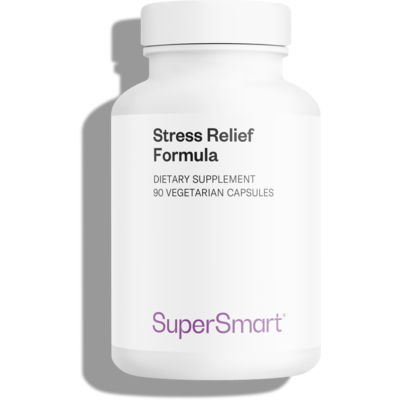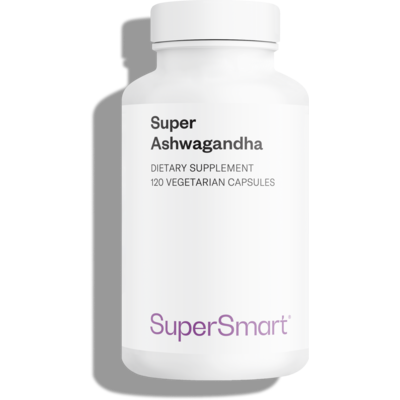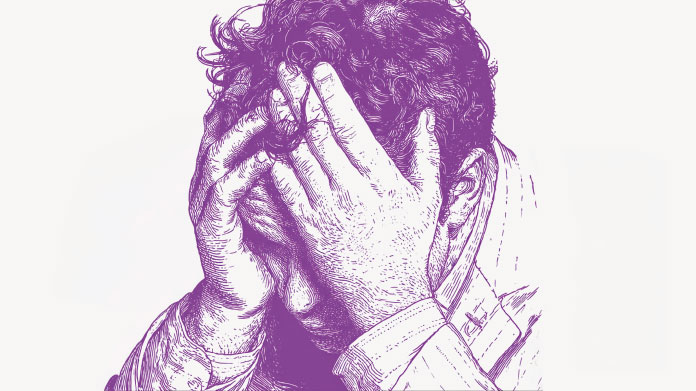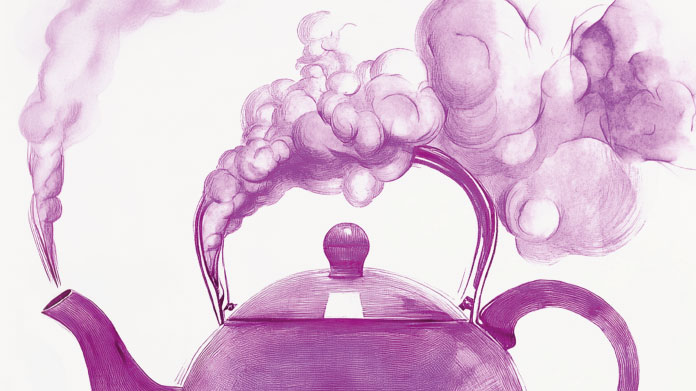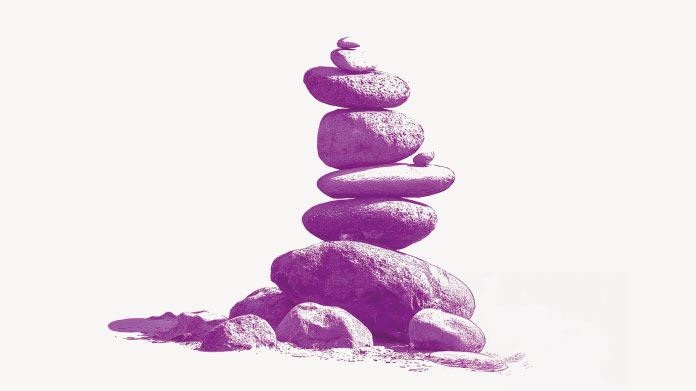Effects of aspartame: is it making us anxious and depressed?
Could this already controversial and ubiquitous sweetener be responsible for an epidemic of hereditary anxiety? The latest research sheds light on the subject.

Aspartame: the sweetener that’s in everything
Though it has a similar calorific value to sugar (around 4 kCal/g), aspartame has 200 times the sweetening power! You can therefore use far lower quantities of this sweetener and obtain the same results as sugar (1).
Given that the WHO recommends we obtain no more than 10% of our daily calorie intake from ‘free’ sugars to avoid its associated health problems (type 2 diabetes, cardiovascular disease, dental caries, excess weight, etc) (2), consumers and manufacturers have turned to aspartame in their droves in an effort to find the same sugary taste (or as a flavour-enhancer, in products like crackers) of their favourite products.
Aspartame is thus found in thousands of products across the world, from diet soft drinks and yogurts, to crackers, salad dressings and even canned meats and vegetables.
Aspartame may induce anxiety… over three generations!
It seems that consuming aspartame can raise levels of phenylalanine and aspartic acid in the brain, compounds which potentially inhibit the production and release of neurotransmitters which are known regulators of neurophysiological activity (3).
Aspartame also acts as a chemical stress factor in elevating plasma cortisol levels and generating excess free radicals. And raised cortisol levels and over-production of free radicals can make the brain more vulnerable to oxidative stress, which in turn can have adverse effects of neurobehavioral health.
What’s more, recent, high-profile research suggests that exposure to aspartame produces changes in the expression of genes regulating the excitation-inhibition balance in the amygdala, an area of the brain that regulates anxiety and fear responses. Worse still is that these effects may be trans-generational (4), ultimately affecting three generations!
That’s why the authors of this research strongly recommend avoiding aspartame to minimise any associated risk of anxiety or depression.
This comes on the back of another study, led by France’s Nutritional Epidemiology Research Team, made up of scientists from Inserm, INRAE, Université Sorbonne Paris Nord and CNAM, which feeds into ongoing re-evaluation of this controversial sweetener by the EFSA (the European Food Safety Authority) because of the increased cancer risk associated with it (5).
How can you reduce your consumption of aspartame?
It’s therefore highly advisable to avoid aspartame and sweeteners in general, especially if you are prone to anxiety, stress, sleep problems or symptoms of depression.
In an ideal world, we should try to gradually wean ourselves off sugar, instead choosing more natural products and replacing the sugar present in, for example, yogurts and fromage blanc, with juicy fresh fruit (pears, kiwi, peaches, etc) or dried fruit such as raisins.
It may help in this regard to start by replacing white sugar with whole sugar (cane, coconut, beet, etc.), maple syrup or honey ( or agave syrup).
It’s also important to avoid ultra-processed foods as much as possible, as they often contain sweeteners (including the low-cost aspartame), consumption of which has long been associated with an increased risk of cancer and cardiovascular disease.
And obviously fizzy drinks, of all kinds have no place within a healthy balanced diet.
If you like to chew gum, think about what’s in it and instead choose chewing gum that’s free from sweeteners, artifical flavourings and antioxidants (such as Mastic Gum Elma, a naturally refreshing chewing gum containing essential oil of Chios mastic).
What natural remedies are there for anxiety?
If you suffer from problems of anxiety or depression, whether or not related to excessive aspartame consumption, there are natural remedies with multiple benefits you can try.
An Ayurvedic plant used for thousands of years in traditional Asian medicine, ashwagandha is an adaptogen plant the benefits of which are recognised by health authorities. It helps promote optimal relaxation, emotional balance and general well-being. Ashwagandha thus provides excellent support in periods of emotional stress and anxiety (6). It comes in capsule form (such as the vegetarian capsules of Super Ashwagandha, which has the highest content of active principles on the market).
In addition, magnesium is an essential mineral that supports normal psychological function and helps reduce fatigue. Meanwhile vitamin B1 plays a role in ensuring the nervous system works properly, and passiflora helps to induce a state of calm, increases the body’s resistance to stress and promotes restorative sleep. Combined in a synergistic supplement, these three natural remedies constitute the perfect aid for fighting anxiety and stress (cf. Stress Relief Formula) (7-8).
Last but not least, many people find it helpful to take an analogue of coenzyme Q10, for combatting oxidative stress, which as we’ve seen, can cause anxiety problems.
SuperSmart ADVICE
References
- https://www.efsa.europa.eu/fr/topics/topic/aspartame
- https://www.who.int/fr/news/item/04-03-2015-who-calls-on-countries-to-reduce-sugars-intake-among-adults-and-children
- CHOUDHARY, Arbind Kumar et LEE, Yeong Yeh. Neurophysiological symptoms and aspartame: What is the connection?. Nutritional neuroscience, 2018, vol. 21, no 5, p. 306-316.
- JONES, Sara K., MCCARTHY, Deirdre M., VIED, Cynthia, et al.Transgenerational transmission of aspartame-induced anxiety and changes in glutamate-GABA signaling and gene expression in the amygdala. Proceedings of the National Academy of Sciences, 2022, vol. 119, no 49, p. e2213120119.
- https://presse.inserm.fr/la-consommation-dedulcorants-serait-associee-a-un-risque-accru-de-cancer/45022/
- SPEERS, Alex B., CABEY, Kadine A., SOUMYANATH, Amala, et al.Effects of withania somnifera (ashwagandha) on stress and the stress-related neuropsychiatric disorders anxiety, depression, and insomnia. Current Neuropharmacology, 2021, vol. 19, no 9, p. 1468.
- MIYASAKA, Lincoln Sakiara, ATALLAH, Álvaro N., et SOARES, Bernardo. Passiflora for anxiety disorder. Cochrane Database of Systematic Reviews, 2007, no 1.
- BOYLE, Neil Bernard, LAWTON, Clare, et DYE, Louise. The effects of magnesium supplementation on subjective anxiety and stress—a systematic review. Nutrients, 2017, vol. 9, no 5, p. 429.
Keywords
4 Days
great products and prices
great products and prices
Marie
10 Days
Easy to navigate site
Easy to navigate site, had what I was searching for, good price. easy order-check out
James Tucker
16 Days
My skin is clearing up nicely!
Pretty good for my skin so far.
Christian
18 Days
The new packaging is excellent
The new packaging is excellent - finally! No more squashed boxes and torn envelopes.
GORAN
19 Days
Great Product
Great Product
Larry Garrett
24 Days
Quick shipping
Quick shipping; good price. No issues!
Mary McCarty
25 Days
Thr product is very good and is helping…
Thr product is very good and is helping me on my health. Then is always on time
LUGO Luz
28 Days
Buying was fine
Buying was fine. I had problems with the website not recognizing my login info, and had to call to get it fixed. Other than that, everything was good.
David S. Clark
28 Days
Your super maca and super ginseng are…phenomenal
Your super maca and super ginseng are phenomenal supplements that compliment each other when taking them together. Fantastic feeling of well-being and lots of mid day energy without the crash.
Keith Mason
30 Days
I have had amazing results with every…
I have had amazing results with every supplement I've purchased. I am extremely satisfied with this company
kirstin Torres
31 Days
Fine products
Fine products . They are on the leading edge of online supplements. The only issue -so far-is they sometime run out of subscription items.
Jason Argos
33 Days
The ordering process is very user…
The ordering process is very user friendly and the products always come in a timely manner.
CARTER Rhonda
34 Days
The price for Dr
The price for Dr. Pero's AC-11 is reasonable and in line with his views. (my former colleague). Keep it pure.
CAMPBELL Clayton
37 Days
Right on every time.
Right on every time.
Arthur Nicholas
40 Days
They are cheaper than everyone else and…
They are cheaper than everyone else and the shipping was fast. Great company.
Patricia Adams


